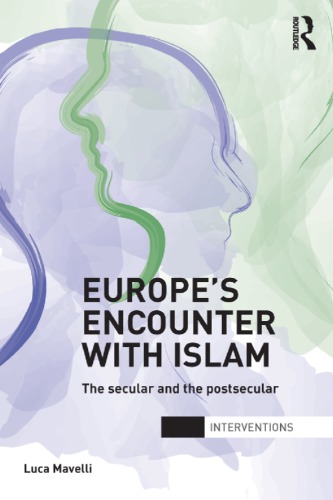

Most ebook files are in PDF format, so you can easily read them using various software such as Foxit Reader or directly on the Google Chrome browser.
Some ebook files are released by publishers in other formats such as .awz, .mobi, .epub, .fb2, etc. You may need to install specific software to read these formats on mobile/PC, such as Calibre.
Please read the tutorial at this link: https://ebookbell.com/faq
We offer FREE conversion to the popular formats you request; however, this may take some time. Therefore, right after payment, please email us, and we will try to provide the service as quickly as possible.
For some exceptional file formats or broken links (if any), please refrain from opening any disputes. Instead, email us first, and we will try to assist within a maximum of 6 hours.
EbookBell Team

4.0
56 reviewsLuca Mavelli argues that this perspective has prevented an in-depth reflection on the limits of Europe’s secular tradition and its role in Europe’s conflictual encounter with Islam. Through an original reading of Michel Foucault’s spiritual notion of knowledge and an engagement with key thinkers, from Thomas Aquinas to Jurgën Habermas, Mavelli articulates a contending genealogy of European secularity. While not denying the latter’s achievements in terms of pluralism and autonomy, he suggests that Europe’s secular tradition has also contributed to forms of isolation, which translate into Europe’s incapacity to perceive its encounter with Islam as an opportunity rather than a threat.
Drawing on this theoretical perspective, Mavelli offers a contending account of some of the most important recent controversies surrounding Islam in Europe and investigates the ‘postsecular’ as a normative model to engage with the tensions at the heart of European secularity. Finally, he advances the possibility of a Europe willing to reconsider its established secular narratives which may identify in the encounter with Islam an opportunity to flourish and cultivate its democratic qualities and postnational commitments.
This work will be of great interest to students and scholars of religion and international relations, social and political theory, and Islam in Europe.